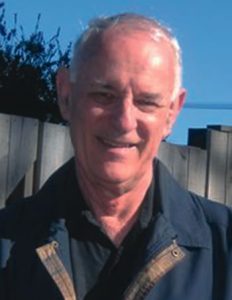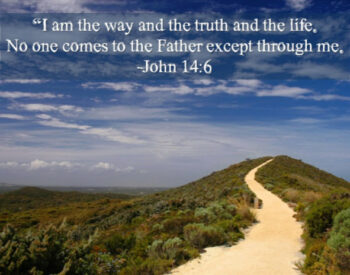Words and God’s Word

By Fr Tom Ryan SM
Part 2 of 10
“You have my word on that.”
That phrase may not involve signing my name on paper or a legal contract. But, if we think about it, when I actually say, “I give you my word,” that seems to have more clout; it’s more personal.
Failing to keep one’s word can permanently end a relationship. Trust has gone. Plus, it won’t remain a private matter for long. It’ll get known around the traps, which will certainly have consequences.
Giving (and keeping) one’s ‘word’ is about making a promise. Promises are the glue of any community or society. Why? They are ways of expressing trust in people. Without them, without basic belief (and confidence) in others, we cannot function. They provide the building blocks of daily living—in our families, at work, with friends, in the wider community.
 How is that so? Consider how we try to keep to rules of the road and trust that others will do the same—so that we can all feel safe when we drive. Again, we rely on the integrity (and honesty) of those we do business with, that bills will be paid.
How is that so? Consider how we try to keep to rules of the road and trust that others will do the same—so that we can all feel safe when we drive. Again, we rely on the integrity (and honesty) of those we do business with, that bills will be paid.
In day-to-day living, we need to trust that people mean what they say and what they stand for. To give one’s word, then, is about being truthful—and consistently so. In a way, it is about the use (and abuse) of power. Let’s consider that for a moment.
We often hear the adage: “power corrupts and absolute power corrupts absolutely.” But this is not quite what Lord Acton said. He said “power tends to corrupt and absolute power corrupts absolutely.” Power (and authority) properly used is a good thing, for the benefit of the community. Still, it has an inbuilt tendency to become a weapon for personal interest and control. It needs vigilance.
When power’s tendency to corrupt is at work, then, words are crucial. They can be used to conceal rather than reveal. Those wielding authority in public life might use words to create mists of deceit. The truth is hidden behind a veil of fuzzy language. Trust is compromised.
What is the solution for such distrust? As much transparency as possible? Live by the adage of a US Supreme Court judge: “sunlight is the best disinfectant”? It has even been suggested that transparency is next to godliness. But is that enough?
If trust is what holds our lives together, then, the truth, even more than transparency, is its constant and needed companion. So much so that we look to moral models or ‘icons’–those who speak the truth and keep their word and, especially, promises. Let’s consider our Christian story.
 Divine Word as a Gift
Divine Word as a Gift
“I give you my word” – how is that true of God?
The Hebrew scriptures speak of wisdom ‘leaping’ down from heaven’s royal throne, entering the human heart, without noise or turmoil, but doing so in personified form—as ‘your all-powerful Word, a ‘stern warrior’ to overcome evil (Wisdom 18: 14-16).
Later, this takes much richer form: the “Word was made flesh (and) lived among us, and we saw his glory.” Here the ‘word’ does not resemble but actually is a person (the Word): “the only Son of the Father, full of grace and truth” (John 1:14). Let’s ponder these phrases.
‘Flesh’ must be carefully understood. In John’s Gospel, the word ‘flesh’ (sarx) (as in St Paul) denotes human existence as bodily, fragile and mortal—the fullness of humanity. It is in this humanity of Jesus that the divine ‘glory’ is revealed, most especially in his death upon the cross. As Jesus says later: “whoever has seen me has seen the Father” (John 14:9).
The Word, identified with the fullness of humanity, is ‘full of grace and truth’. God’s favour and faithfulness (‘grace’) earlier revealed to Moses now finds its fulfilment—the divine glory revealed in the humanity of Jesus. Again, Jesus as the ‘truth,’ not only stands in contrast to what is false, to lies and deception. He also reveals in his person that God is always faithful, reliable, trustworthy.
Further, this embodied Word not only uncovers the inner mysteries of the divine life: it is through Him that we are offered a share in that life.
In the Word made flesh, then, God is saying in unmistakeable terms: “I give you my word.” For that reason, Jesus reminds us: “I am the Way, the Truth and the Life” (John 14:6). But also “trust in God still and trust in me” (14: 1).
And so…??
With these foundational thoughts, this series will build on a Short Course in Human Relations—designed some years ago by The Australian Research and Education Centre for Catholic Institutions. It listed the most to the least important words.
Next month:
“I admit I made a mistake.”
 Entries(RSS)
Entries(RSS)